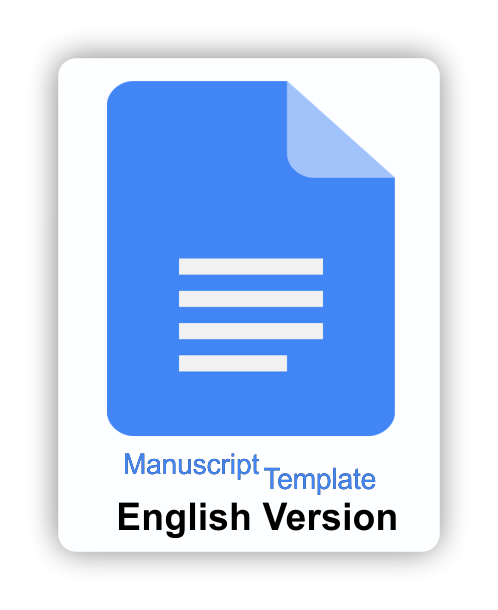The connection between knowledge and skills in the cookie domain within pastry and bakery programs
DOI:
https://doi.org/10.21831/jcte.v1i2.662Keywords:
Cookies, skills, knowledge, vocational high schoolAbstract
This study aims to analyze the relationship between students' knowledge and skills in cookie making at SMK Negeri 3 Klaten. The research method used is quantitative correlational, with a purposive sample of 35 students from Class XII Boga 1. Data were collected through knowledge tests and performance assessments. The average knowledge score was 78, while the average skill score was slightly higher at 82.9. Statistical analysis showed a very strong positive correlation of 0.963 between knowledge and skills, significant at the 0.05 level. These results indicate that students' theoretical understanding of cookies greatly influences their practical skills in cookie making. The validity and reliability of the instruments were tested using factor analysis and Cronbach's Alpha to ensure data accuracy. This study emphasizes the importance of vocational education that integrates theory and practice to better prepare students for careers in the culinary field. The implications of this study highlight the need for more effective teaching strategies that combine knowledge acquisition with skill development. By enhancing these two aspects, student learning outcomes in pastry and bakery subjects can be improved, potentially reducing unemployment rates among vocational school graduates.
Downloads
References
Ali, et al. (2017). Exploring factors influencing employability of vocational training graduates in Pakistan: A factor analysis.
Almetwazi, M., Alhammad, A., Alturki, H., Aljawadi, M., & Asiri, Y. (2020). Pharmacy students’ satisfaction with introductory pharmacy practice experiences (IPPE) at community pharmacy: The case of Saudi Arabia. Saudi Pharmaceutical Journal, 28(1), 68-73. https://doi.org/10.1016/j.jsps.2019.11.006
Boonsri, S., Pupat, P., & Suwanjan, P. (2019). Dual vocational students’ competency: A second order confirmatory factor analysis of occupational competency in enterprise. Mediterranean Journal of Social Sciences, 10(1), 105-115. https://doi.org/10.2478/mjss-2019-0011
Djazari, M., & Sagoro, E. M. (2011). Evaluasi prestasi mahasiswa program kelanjutan studi jurusan pendidikan akuntansi ditinjau dari IPK D3 dan asal perguruan tinggi. Jurnal Pendidikan Akuntansi Indonesia, 9(2), 103-112. http://dx.doi.org/10.21831/jpai.v9i2.970
Fu, F. (2024). Mental well-being and self-efficacy among students in a vocational & technical college in Shaanxi Province, China. Pacific International Journal, 7(2), 68-72. https://doi.org/10.55014/pij.v7i2.567
Hanafi, I. (2013). Re-orientasi keterampilan kerja lulusan pendidikan kejuruan. Jurnal Pendidikan Vokasi, 2(1). https://doi.org/10.21831/jpv.v2i1.1021
Joko, B. S. (2021, May). Guru produktif dan muara industri yang integratif. Kementrian Pendidikan, Kebudayaan, Riset dan Teknologi. https://pskp.kemdikbud.go.id/produk/artikel/detail/3135/guru-produktif-dan-muaraindustri-yang-integratif
Kemendikbud. (2018). Peraturan Menteri Pendidikan dan Kebudayaan RI Nomor 34 Tahun 2018, tentang Standar Nasional Pendidikan Sekolah Menengah Kejuruan/Madrasah Aliyah Kejuruan.
King, N., Touw, T., & Spowart, L. (2016). A scoping study investigating student perceptions towards inquiry-based learning in the laboratory. European Journal of Science and Mathematics Education, 4(3), 305-314. https://doi.org/10.30935/scimath/9472
Kurniawan, A., Prananda, J., Koenhardono, E., Sarwito, S., Kusuma, I., & Masroeri, A. (2021). Pelatihan dasar programmable logic controller (PLC) berbasis daring menggunakan PLC fiddle untuk guru SMK di Surabaya. Sewagati, 5(3), 278-285. https://doi.org/10.12962/j26139960.v5i3.61
McKenzie, S., & Mellis, C. (2017). Practically prepared? Pre-intern student views following an education package. Advances in Medical Education and Practice, 8, 111-120. https://doi.org/10.2147/amep.s116777
Mubarak, W. I. (2011). Promosi kesehatan untuk kebidanan. PT. Salemba Medika.
Saputra, M. R., Ambiyar, Irzar, Mulianti, Syahri, B., & Ardi, J. (2020). Hubungan konsep diri dengan hasil belajar mata diklat gambar teknik siswa kelas X di SMKN 1 Padang. Jurnal Vokasi Mekanika, 2(2), 86-92.
Sari, D. (2023). Peningkatan mutu pendidikan kejuruan pada era pembelajaran abad ke-21 untuk menjawab tantangan industri 4.0. Sang Acharya Jurnal Profesi Guru, 4(1), 71-79. https://doi.org/10.25078/sa.v4i1.3234
Sari, L. (2019). Meningkatkan aktivitas dan prestasi belajar siswa materi pokok Danish Pastry dengan menerapkan model pembelajaran tutor sebaya (Peer Tutoring). Jurnal Penelitian dan Pengembangan Pendidikan, 3(1), 43-47. https://doi.org/10.23887/jppp.v3i1.17100
Satria, B. (2024). Sosialisasi revolusi industri 4.0 terhadap bidang perkantoran pada siswa jurusan OTKP di SMKS Teknologi Industri Pinggir. Jurnal Pengabdian Kolaborasi dan Inovasi Ipteks, 2(1), 48-55. https://doi.org/10.59407/jpki2.v2i1.341
Subjianto, S., Sumantri, D., Martini, A. I. D., Mustari, I., & Soroeida, T. (2020). Revitalisasi kurikulum SMK pariwisata kompetensi keahlian tata boga. Kementrian Pendidikan dan Kebudayaan.
Sugiyono. (2019). Statistika untuk penelitian (30th ed.). Alfabeta.
Sutikno, T. A. (2013). Managemen strategik pendidikan kejuruan dalam menghadapi persaingan mutu. Jurnal Teknologi dan Kejuruan, 36(1), 87-96. http://dx.doi.org/10.17977/tk.v36i1.4073
Tauhid, R. (2022). Relevansi kompetensi lulusan SMK kompetensi keahlian bisnis konstruksi dan properti dengan kompetensi yang diperlukan di dunia kerja. Indonesian J. Build. Eng., 2(2), 89-106. https://doi.org/10.17509/jptb.v2i2.51661
Varadarajan, S., & Ladage, S. (2022). Introducing incremental levels of inquiry in an undergraduate chemistry laboratory: A case study on a short lab course. Journal of Chemical Education, 99(12), 3822-3832. https://doi.org/10.1021/acs.jchemed.2c00297
Wardina, U., Jalinus, N., & Asnur, L. (2019). Kurikulum pendidikan vokasi pada era revolusi industri 4.0. Jurnal Pendidikan, 20(1), 82-90. https://doi.org/10.33830/jp.v20i1.240.2019
Wu, Y. (2015). Applying culturally responsive pedagogy to the vocational training of immigrants. Journal of Education and Training Studies, 4(2). https://doi.org/10.11114/jets.v4i2.1165
Downloads
Published
How to Cite
Issue
Section
Citation Check
License
Copyright (c) 2024 Latifah Nurul Qomarotul Nikmah, Rizqie Auliana

This work is licensed under a Creative Commons Attribution-ShareAlike 4.0 International License.







